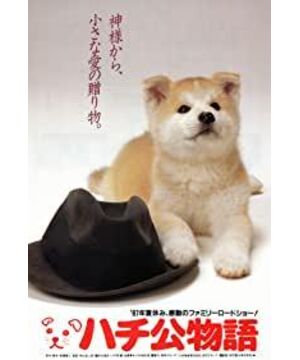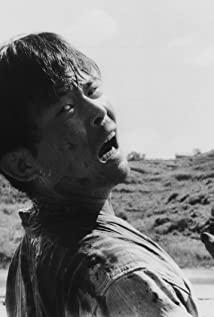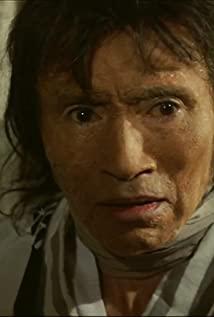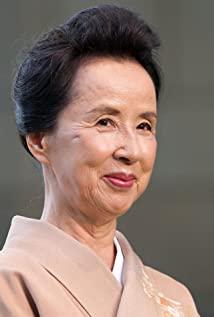I watched the American version first. Although I watched it, I was also in tears and choked up, but I was more moved. The opening feels like a typical American movie mode, where the little boy is introducing his grandfather's dog as his hero.
Maybe the background of the story is set in modern times and in the United States, and in everyone's past impression, Americans love animals very much, live with them as equals, and live in harmony and beauty. And after the professor's death, hachi got the love of the professor's daughter. Of course, this cannot be compared with the professor's love, but hachi will always have people who are willing to take him in. hachi chose to give up, he was willing to live under the abandoned carriages at the station, so that as soon as a train arrived, he could immediately go to the station and wait for his professor.
Although hachi has become a stray dog, the clerks of the butcher shop are willing to feed him meat every day, and the owner of the hot dog stand in front of the station is also willing to give him food. People who commute at the station every day greet him every day. Hachi does not Pity, although he no longer has a professor, there are still many people who are willing to give him love, but he chose to give up and just waited for his professor. So, hachi's love touched me.
But the Japanese version of the story made me feel like a knife, and I kept thinking about it in my mind. The time was in 1923. Similarly, hachi got the most selfless love from the professor, but the professor passed away, but no one was willing to adopt hachi. The professor's daughter was ruthless. hachi, even when it rained, her mother thought of hachi, when she wondered if hachi was doing well, she said what she wanted him to do, not even as good as her husband.
Hachi's life has been turned upside down. When it rained before, the professor would bring Hachi into the house to prevent him from getting caught in the rain. Being able to stand in the rain, drenched all over, seeing this, and writing this now, my eyes are blurred with tears, how could Hachi not miss the professor in his heart.
Hachi wants to have a home, he doesn't want to be a stray dog, all he has to do is pick up the professor at the station at a fixed time every day, but he doesn't have a home anymore, the second one is really willing to adopt him, Ju Saburo also died of illness, his wife retired from the house, squatted down and said to Hachi, please don't lose to other stray dogs, hachi doesn't know what to think, later, Hachi has been wandering and will often come to him full of love He wandered around the door of the house, but was driven, threatened, beaten and scolded by the new owner, and occasionally came to the door of Kisaburo's house, but he could no longer enter. hachi knows who is the one who truly loves himself.
He had received such a beautiful and rich love, but everything disappeared with the death of the professor. How can a dog endure such a gap? The contrast between before and after is shocking and directly touching people's hearts.
What saddens me the most is that the Japanese version of hachi waited at the station for 9 years, but in the movie, almost every day people pass by him, no one cares about him, no one greets him, only the hawkers in front of the station move. Out of compassion, I occasionally fed him food. But it was also hungry and full. In the movie, through the mouth of the hawker's wife in front of the station, the audience was told that hachi was a complete stray dog at this time, with sparse hair and skinny. Makes me feel like the whole world has forgotten him.
In the Japanese version, when hachi was about to die, he also dreamed that the professor he had been waiting for for 9 years finally came back and met him, but when the camera turned, in the early morning of a snowy night, hachi died forever. Pedestrians came and went one after another, but no one stopped in front of Hachi to see what was wrong with him, why he was lying in the snow like this, and everyone walked past him indifferently, as if invisible. It makes people look too sad, but the ending song suddenly comes lightly, which makes people puzzled. Is this also a painful picture with such a light music? Then I thought maybe this was finally a relief for hachi, and he could finally be with the professor again, isn't it worth being happy, although it left us sad.
In the US version, I think Americans can't shoot such a cold ending after all. When Hachi was dying, the camera only had his face and nothing else, so it wouldn't be too cruel.
I want the Japanese version of the movie, because the story takes place in 1923, in the middle of the First World War and the Second World War. At that time, Japan was not very rich, and the average Japanese was also struggling in life, Of course, the life of a dog who is also struggling is not unimportant.
Hachi can't say that he is unfortunate because he got such a good master, but he can't say that he is lucky because he enjoys a good life for only one year, and for the rest of his life, he is in pain for 10 years spend.
hachi wants to have a home, but no one wants to take him in.
hachi wanted a place to hide from the rain on a rainy day, but there was no eaves to keep him from getting soaked.
Hachi wants the professor's love, but he never sees him again.
The Japanese version of "The Tale of the Loyal Dog Hachiko" really made my tears flow again and again. Writing this article is also tearful. If I don't write something, I can't feel at ease.
The saddest thing is that we can never avoid such a thing...
View more about Hachi-ko reviews











